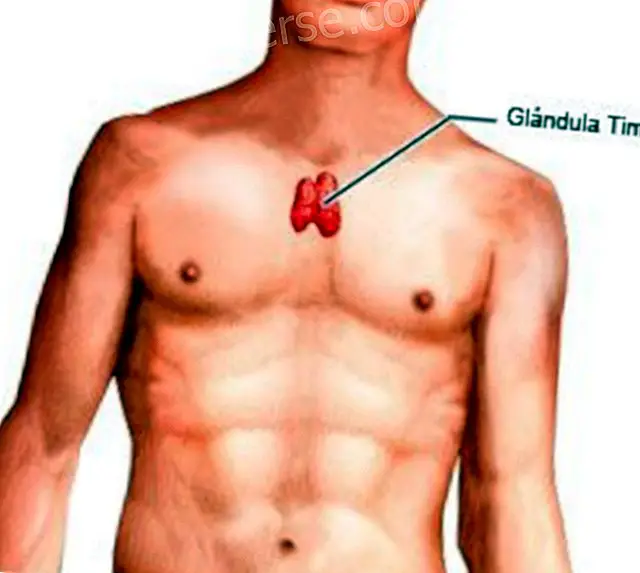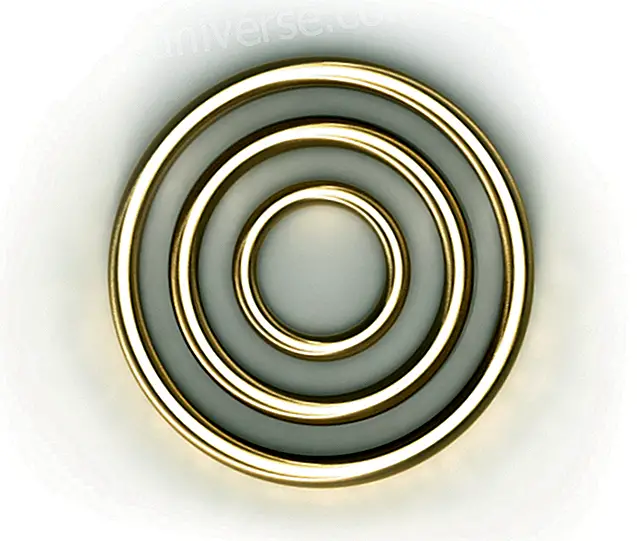 THE TIMO: THE KEY OF VITAL ENERGY
THE TIMO: THE KEY OF VITAL ENERGY
The thymus is the first gland that forms in the machine and corresponds to the SUN and the fourth chakra. In the center of the chest, behind the bone where people touch when they say yo, there is a small gland called TIMO. Its name in Greek, th mos, means vital energy.
The thymus, in anatomy, is an organ of the lymphatic system, responsible for the maturation of the deep (or paracortex) and medullary vertex, throwing the superficial crtex of dark color, and the light colored marrow after staining. The cortex is made up of tightly packed lymphocytes, epithelial cells called reticular epithelial cells that surround lymphocyte groups, and macrophages. The marrow contains, first of all, reticular epithelial cells, in addition to very dispersed lymphocytes. In the medulla, the asymmetric corpuscles of Thymus (or Hassall), which are thick concentric layers of reticular epithelial cells flattened and filled with granules of keratohyaline and keratin.
Its structure originates from the third branchial pouch in the fetus, which appears fully developed in the third month of gestation (from 12 to 15 g), and continues to grow until puberty where it reaches its maximum growth (between 30 and 40 g). Then it involves atrophying in a progressive and constant way, producing the replacement of the thymic tissue with adipose and connective tissue areolar and reaching, in adulthood, about 10 or 15 g, being replaced much of it by adipose tissue.
Thymus Functions
The thymus has a clear influence on the development and maturation of the lymphatic system and the defensive immune response of our body. It can also influence the development of the sex glands. The thymus is a primary lymphoid organ in which differentiation of undifferentiated lymphocytes (T lymphoblasts) that exited the bone marrow takes place; they enter the thymus and colonize different areas of it, while they mature and differentiate. The first colonized area is the superficial cortex. From this they pass to the deep cortex and finally to the thymus medulla. Along this path, T lymphoblasts acquire specific antigenic receptors and learn not to attack the individual's own antigens (autoantigens), becoming mature T lymphocytes.
It can also be considered as an organ of the endocrine system and therefore an endocrine gland, since it secretes hormones and other soluble factors, which in addition to controlling the production and maturation of T lymphocytes in the thymus, regulate the activity and interactions of cells T in peripheral tissues. Three polypeptides are known, with hormonal characteristics, secreted from this organ, which are thymoline, thympoietin and thymosin. [Citation needed]
History
The thymus was known to the ancient Greeks, and its name comes from the Greek word ????? (thumos), which means heart, soul, desire, life - possibly because of its location in the chest, near where emotions are subjectively felt; or alternatively its name comes from the herb thymus (thyme) (in Greek ?????), which became the name of a "report excretion", possibly because of its resemblance to a bunch of thyme.
Galen was the first to realize that the size of the organ changed throughout a person's life.
Because of the large number of apoptotic lymphocytes, initially the thymus was considered a "lymphocyte tomb", without functional importance. The importance of the thymus in the immune system was discovered in 1961 by Jacques Miller, by extracting by surgery the thymus of a mouse that was three days old, and observing the deficiency that his lymphocyte count subsequently suffered, which were later called cells T, in references to the organ where they came from. Recently, studies in immunology have allowed us to understand in detail what is the role that the thymus plays in the maturation of cells.
Yes, it is necessary to say something else ... Because the scam is still an illustrious stranger. He grows when we're happy and shrinks in half when we're stressed and even more when we get sick.
That characteristic confused medicine for a long time, which only knew him through autopsies and always found it shrunk and shrunk.
He was supposed to atrophy and stop working in adolescence, so much so that for decades American doctors bombed perfectly healthy scams with high doses of X-rays, believing that their 'abnormal size' could cause problems.
Later science showed that, likewise shrinking after childhood, he is still active; It is one of the pillars of our immune system, along with the adrenal glands and the spine and is directly connected to the senses, consciousness and language.
 Thymus gland stimulation
Thymus gland stimulation
As a telephone exchange where all calls go, it makes connections outside and inside. If we are invaded by microbes or toxins, it reacts immediately producing defense cells.
But it is also very sensitive to images, colors, lights, smells, flavors, gestures, touches, sounds, words and thoughts. Love and hate affect him deeply. Negative thoughts have more power over him than viruses and bacteria.
As this negative attitude does not exist in a concrete way, the thymus tries to react and weakens, fighting an unknown invader and opens spaces for symptoms of low immunity, such as herpes.
In return, positive thoughts manage to activate all their powers, remembering that faith removes mountains.
A thought test. This simple test can demonstrate that connection.
Close your thumb and index finger in the 'ok' position, squeeze hard and ask someone to try to open them as soon as you think 'I'm happy'.
Then repeat thinking 'I am unhappy'.
Most people retain strength in their fingers with happy thinking and weaken when they think they are unhappy. (Replace the thoughts with a delicious chocolate ice cream, a coconut cake, filled with cream, to see what happens ...)
That same test serves to diagnose quite more complex situations. For example, the doctor needs a differential diagnosis, his patient has symptoms in the liver that can mean both cancer and abscesses due to amoebas.
Using sheets with samples or the same graphic representations of one or another hypothesis, test the patient's muscular strength while in contact with them and arrive at the desired result.
The reactions are considered thymus responses and the method, which has been demonstrated in scientific conferences around the world, is already taught at the University of Sao Paulo (Brazil) and to medical acupuncturists. The curious detail is that the scam is well attached to the heart that ends up earning all the credits in relation to feelings, emotions, decisions, way of speaking, listening, state of spirit, etc ...
'I am with a tight heart', for example, reveals a real situation of the thymus that only by reflection involves the heart in the problem.
The cardiac farm itself, an energy source of union and compassion, has more to do with the thymus than with the heart and it is in that field that, according to the Buddhist teachings, that the passage from the animal state to the human state is given.
How interesting!, you may be thinking, but what about that? It turns out that, if you want, you can exercise the thymus to increase your production of well-being and happiness.
In the morning, when lifting, or at night before bedtime: a) Standing, knees slightly bent, (the distance between the feet should be the same as the shoulders). Put the weight of the body on the fingers and not on the heel and keep all the muscles well relaxed.
b) Close any of the hands and start tapping continuously with the knots of the fingers in the center of the chest, marking the rhythm thus: one strong and two weak. Continue doing it for 3 to 5 minutes, breathing calmly, while observing the vibration produced throughout the thoracic region. (make 20 touches in the morning and 20 touches at night).
The exercise will be attracting blood and energy to the thymus, making it grow in vitality and also benefiting the lungs, heart, bronchial tubes and throat. That is, filling the chest with something that was already his and was just waiting for a look of recognition to transform into courage, calm, emotional nutrition, hug.
Excellent, intimate, full of encouragement. Blessed Thymus.
Source: Francisco Javier Garcia Aza edo, Director of Self-healing, facebook Self-healing

 THE TIMO: THE KEY OF VITAL ENERGY
THE TIMO: THE KEY OF VITAL ENERGY  Thymus gland stimulation
Thymus gland stimulation 




